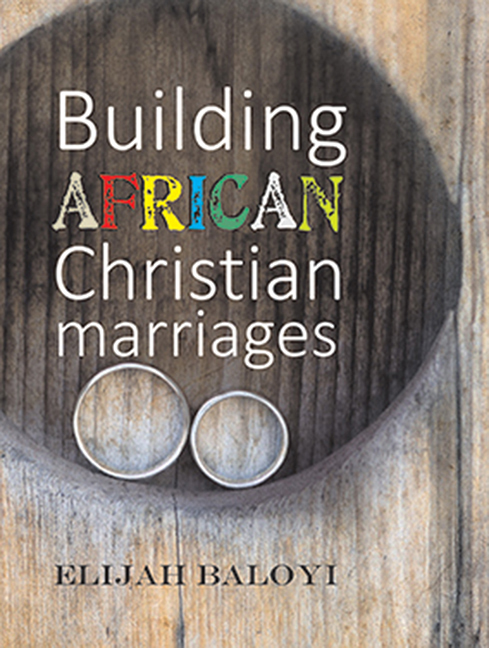Book contents
- Frontmatter
- Dedication
- Contents
- Foreword
- Preface
- Acknowledgements
- Chapter 1 Traditional obstacles in young African marriages
- Chapter 2 Excessive family intervention in African marriages
- Chapter 3 The influence of lobolo on the African marriage union
- Chapter 4 The negative influence of infertility on young African marriages
- Chapter 5 Some biblical teachings about marriage
- Chapter 6 Conclusion
- Appendix A comparison of the African and the biblical perspective on marriage
- References
- Index
Chapter 2 - Excessive family intervention in African marriages
Published online by Cambridge University Press: 14 February 2020
- Frontmatter
- Dedication
- Contents
- Foreword
- Preface
- Acknowledgements
- Chapter 1 Traditional obstacles in young African marriages
- Chapter 2 Excessive family intervention in African marriages
- Chapter 3 The influence of lobolo on the African marriage union
- Chapter 4 The negative influence of infertility on young African marriages
- Chapter 5 Some biblical teachings about marriage
- Chapter 6 Conclusion
- Appendix A comparison of the African and the biblical perspective on marriage
- References
- Index
Summary
Introduction
‘I am, because we are, and since we are, therefore I am’ (Mbiti 1969:108).This statement helps us to understand that African people do not live in isolation. Living together in an African context does not exclude the issue of marriage; hence an African woman is not only married to her husband, but to the entire family and clan.
This book commends the beauty of communalism as one of the beautiful traditions of African people, but also maintains the author's critical stand whenever this practice overlooks the married couple's responsibility to make decisions of their own. The practice of relatives and clans coming together when two people marry has a lot to commend it. This chapter is intended to not only praise the practice, but to also re-investigate excessive family intervention by relatives, in-laws and other people who are close to the married couple, to such an extent that the couple becomes subject to their dictatorship. One can call it ‘excessive intervention,’ which means that the couple are not allowed space to live their lives as they see fit.
As Josiah (1988:6) puts it, parents can help their son or daughter identify problems and forbid him or her from marrying the wrong person. He says, for instance, that ‘if one had already married, has not been [through] customary divorce, or if one of them was a thief or otherwise of bad conduct’ (Josiah 1988:7). Others call it ‘parental consent’ – a daughter may not marry without the consent of her father. As for the young man, even though he may be independent, he must still have his choice sanctioned by his parents (Musharamina 1981:14–15).
Most parents would like to see their children successfully and happily married. Mathipa (1993:26) is correct in pointing out that one of the essentials of a customary marriage is the consent of the in-laws to hand over the girl while the others receive her. The engaged couples should therefore keep their parents well informed and involved in all the details of the marriage preparations. According to research done by Hartman and Boonzaaier (1988:75–81), marriage is a bond between the two families concerned, which is confirmed by the provision of the marriage goods.
- Type
- Chapter
- Information
- Building African Christian Marriages , pp. 9 - 18Publisher: University of South AfricaPrint publication year: 2013



